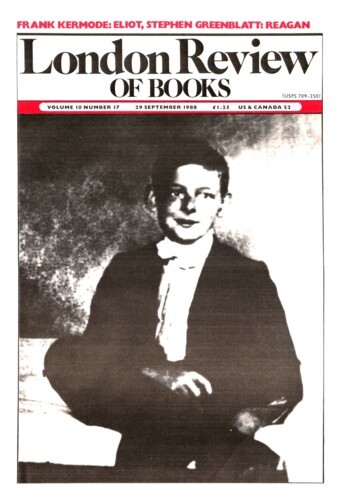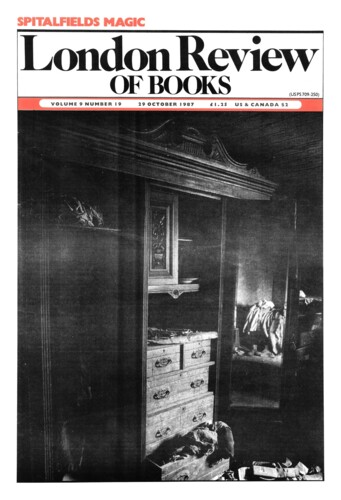Keepers
Andrew Scull, 29 September 1988
For nearly two centuries now, the treatment of the mad in Georgian England has been almost uniformly portrayed in the darkest hues. Nineteenth-century lunacy reformers pictured the preceding age as mired in ignorance and cruelty, conjuring up indelible images of monstrous madhouse-keepers beating their patients into submission, chaining them up like wild beasts in foul holding-pens filled with shit, straw and stench; of the callous, jeering crowd – urban sophisticates and country bumpkins alike – thronging to Bedlam in their thousands to view the splendid entertainment offered by the spectacle of the raging and raving mad. Generations of Whiggish historians, celebrating the Victorian asylum as a triumph of science over superstition, the very embodiment of an aroused moral consciousness, sang variations on the same theme, seizing on the passage from the madhouse to the mental hospital as decisive evidence of our progress towards ever greater enlightenment and heaping opprobrium on the benighted denizens of an earlier age.


